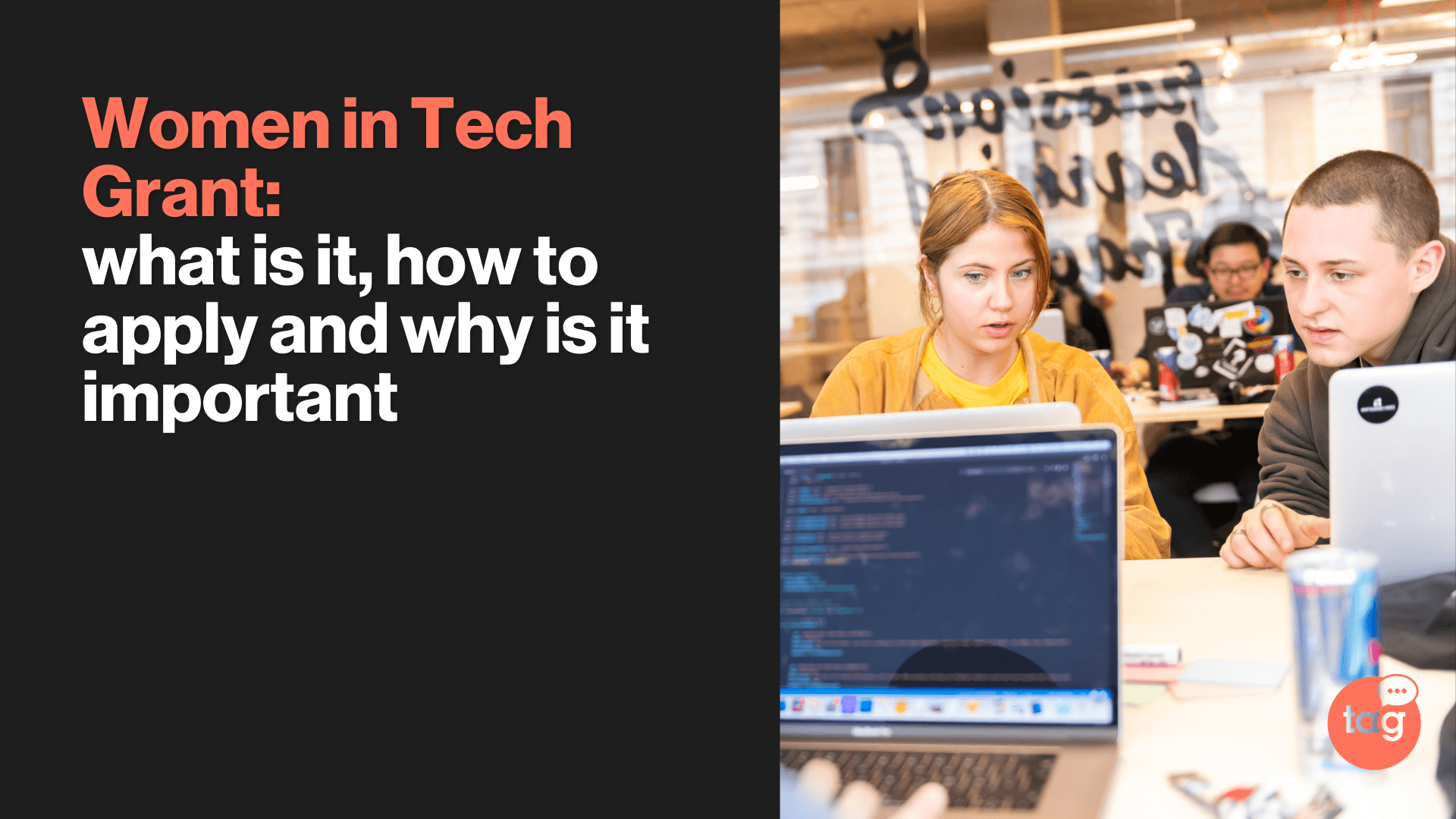- Home
- Business Innovation
- Leading in the Digital Age: Balancing AI Skills with Emotional Intelligence
Leading in the Digital Age: Balancing AI Skills with Emotional Intelligence


Do you have the necessary “superpowers” to face the challenges of the future?
Formidable challenges are waiting for us in the near and far future. How many times have you heard this sentence? However, if a historical moment when uncertainties and risks outnumber safety areas ever existed, it is precisely the present one. Think about the automation of human labour and subsequent relocation of professional services, or the disruption of global value chains and the impact is having on businesses, or even about the growing global mismatch between labour supply and demand.
So, without exaggerating, you could dare to say that we need superpowers to overcome these challenges. It’s exactly what Reid Hoffman, the founder of the social network LinkedIn, later turned venture capitalist in the Artificial Intelligence (AI) sector, says: “AI is a superpower through which we can build a new way of working”.
We have already discussed this on this blog. In 2023 and beyond, Artificial Intelligence is bound to play an increasingly vital role in our lives, all-round: from the social to the political and economic dimension, as well as the professional sphere, of course.
Consider that:
- Artificial Intelligence is estimated to increase the total annual value of goods and services produced globally by 7%, and in the meantime impact (and eventually replace) 300 million full-time jobs (20% of which from the Euro area).
- Artificial Intelligence is progressively automating, personalising and fine-tuning manufacturing processes in industrial sectors as widespread as healthcare, e-commerce, banking, education, infrastructure and professional services – and will increasingly do so.
- Large Language Models and Generative AI are expected to accelerate both personalised and applied learning inside and outside of the workplace. The most evident consequence of this is that linear educational pathways are becoming outdated and will soon be replaced by machine-driven and peer-to-peer learning methods.
Beware now. Alongside the superpower of Artificial Intelligence comes a second superpower of equally fundamental importance. This is also concerned with intelligence, but this time human, not artificial: Emotional intelligence.
Traditionally understood as the ability to manage both our emotions and understand the emotions of people around us, Emotional Intelligence has long been relegated to the fields of neuroscience and individual growth and personal motivation.
This, however, has not been the case for some time now. Suffice it to say that:
- 71% of hiring managers say Emotional Intelligence is more important than IQ, and 70% of Fortune 500 companies are setting aside budgets to train Emotional Intelligence.
- The World Economic Forum listed Emotional Intelligence as one of the top 10 skills needed by workers already in 2020. In 2023, 58% of success across all jobs is attributed to Emotional Intelligence; Millennials who have higher emotional intelligence scores are 290% more likely to have high job satisfaction; and, finally, people who understand emotions earned $28,000 more annual income on average. Sales reps who received Emotional Intelligence training outsold other groups by an average of 12%. That equated to over $55,000 each.
- As we reported on this blog, being capable of empathising with colleagues and peers, as well as possessing a creative and curious mindset (all of which are critical facets of Emotional Intelligence) is key for a promising career anywhere in the world, in any professional field.
Do you get the point? The twin “superpowers” of artificial and emotional intelligence are absolutely cross-cutting. That is, they are valuable allies for anyone, at any stage of their career, in any professional field. There is, however, one category that absolutely cannot do without them: they are today’s leaders and especially those of tomorrow. It is to them that we now turn: are you ready to take on the future?
Artificial Intelligence and Leadership
Let us begin with Artificial Intelligence. For the leaders of tomorrow, Artificial Intelligence is the first essential “superpower” to successfully manage the complex and daunting challenges of the future.
But how exactly?
Let’s start with the data again. In 2023, 35% of businesses already use Artificial Intelligence, with 42% of companies considering implementing Artificial Intelligence in the future. The worldwide Artificial Intelligence market size in 2022 reached $136,6 billion, a huge increase compared to the $93,5 billion market size of 2021 – even greater when compared to the predicted $1,811 billion reached by 2030.
Now, moving beyond revenues, the question is: What is the greatest advantage that artificial intelligence is bringing to businesses, and what does it mean for leadership? Four things must be considered:
- First and foremost, Artificial Intelligence enhances creative and critical thinking. For businesses implementing Artificial Intelligence solutions, the major benefit consists of saving time and costs from repetitive tasks that used to take up valuable time and resources (data entry and invoicing, for example). This means that with Artificial Intelligence, many employees are being allowed to focus on higher-level tasks requiring more critical thinking and creativity. Leaders and executives will thus play an ever-increasing role in leveraging employees’ creative skills.
- Second, Artificial Intelligence improves decision-making, making it quicker and more efficient. In the world before Artificial Intelligence, the bulk of management was spent on administrative tasks (see graph below). As time is gained in business processes through Artificial Intelligence, managers are increasingly expected to have a strategic vision to steer business activities towards experimentation, learning and collaboration.
- Companies need the best talents to develop Artificial Intelligence solutions that are innovative, competitive and bound to win. As Davide Dattoli, the CEO of Talent Garden, pointed out in a recent interview, the global competition to attract and retain the best professionals is fierce. Switzerland, Singapore and Denmark are currently ranking Top 3 in the global talent competitiveness index, with European countries dominating the Top 25. But things move fast: in 2022, China escalated to 36th, becoming the most talent-competitive upper-middle-income country. Here is the challenge for leaders: they must be proactive in allocating sufficient funding to experimentation, attracting and developing the right talents.
- Along with great advantages, Artificial Intelligence also brings new problems. Think of issues related to data privacy, algorithmic bias, and transparency. Sustaining Artificial Intelligence requires businesses to address challenges related to data, technology and governance, including critical aspects related to Artificial Intelligence ethics and accountability. For this reason, future leaders must ensure that Artificial Intelligence systems are developed and used responsibly, with appropriate controls and safeguards in place.
So, in summary, the superpower of AI is transforming production processes, freeing creative energies, speeding up workflows and attracting new kinds of expertise to the company. AI-savvy leaders are thus needed: people who cultivate cooperation in the enterprise, who are capable of motivating colleagues and who are able to manage the ethics of algorithms.
Emotional Intelligence and Leadership
Next, let’s talk about the second superpower: Emotional Intelligence.
When asked in 2016 what skills they would need the most in the following decade, most of the managers surveyed by the Harvard Business Review undervalued the social skills that are critical to networking, coaching and collaborating.
Just a few years later, Emotional Intelligence stopped being a mere corporate buzzword and became an influential factor with direct impacts on businesses’ strategies and revenues. It is hardly the case to say that here, too, the impact on leadership is very important:
- COVID-19 upended office work as we all knew it. The large majority of workers (72% worldwide) today prefer a mix of remote and office work, with knowledge workers reporting higher levels of satisfaction with remote work. At the same time, the once-celebrated office culture has begun to disappear. In Italy, 68% of large companies and 45% of public administrations have initiated a re-thinking of workspaces. In particular, 52% of large organisations, 30% of SMEs and 25% of public administrations have already carried out or are in the process of modifying their environments. In China, France, Germany, India, Japan, Spain, the UK and the US, companies’ new workspace planning aims at an overall 30% space reduction. From an emotional intelligence point of view, new leaders must be able to empathise with work teams that do not always operate in their presence, and they must also be able to resolve conflicts and motivate their co-workers.
- With digitisation and technology, many companies and professionals discovered new possibilities for doing business in previously unknown markets. Some interesting data: Professionals who allotted 6.3 hours per week to networking activities said that it played a crucial role in their success; 85% of job vacancies are filled via networking; and, finally, 80% of Business to Business buying decisions are based on a buyer’s direct or indirect customer experience (compared to only 20% is based on the price or the actual offering). Do you already know what that means for a leader who is emotionally intelligent? You got it: the ability to create an upward, self-reinforcing spiral of trust among team members, as well as the capacity to nurture a constructive and stimulating business environment.
History speaks of many emotionally intelligent leaders. Martin Luther King was able to enthuse people with his words and tone of voice; Robert F. Kennedy showed great empathy by shifting his political priorities to address the needs of African Americans; Winton Churchill charmed his audience with his humorous tone.
The modern Emotional Intelligence leadership can count just as many examples. Jeff Bezos proved to have a long-term perspective on business strategy and relationships (with customers and among employees); John Donahoe (eBay) characterises her leadership by her self-awareness and ability to listen; Ursula Burns rose to the role of CEO of Xerox (and became a key case study in organisational development as the first woman-to-woman leadership transition in a company) thanks to her assertiveness that inspires her employees.
How are tech-savviness and the human touch balanced in modern leadership?
With the two superpowers coming alongside digital leadership, a transformation-rich future seems to await us all. Let’s take a look at it together:
- Are we going to have more technological or more emotional leaders? Both, obviously. In 2022, the 20 top-performing brands in Emotional Intelligence all significantly increased shareholder value: earnings increased to +910%. Google, Netflix and McDonald's recorded the largest increases in shareholder value, proving that emotionally smarter brands grow faster.
- At the helm of what kind of companies are we more likely to find the leaders of the digital age? Digital ones, of course, but not only that. Agritech, edtech and energy-related technologies are seen by companies as the most strategically important over the next 10 years in more than 120 economies.
- And finally, what will technological and emotional leaders look like? Hopefully, as many women as men. To date, women in top leadership positions are still very rare. Women represent 28% of board members, 20% of executives, 26% of senior managers and 38% of the total workforce. Only 18 companies have achieved 40-60% women at all levels, from the grassroots to the top.
In conclusion, we set out by telling you how important technology, and artificial intelligence, in particular, is to both professionals and companies. The challenge for the former is to keep up with training, updating their skills and practising all the latest developments in the artificial intelligence market.
Then we told you that technology is not enough for you. That would have been too easy. You need another intelligence, the emotional one. But if that sounds like bad news, don’t despair just yet. The ability to feel empathy is something you can learn and practise. For example, by widening your circle of contacts, investing more in teamwork, and trying to put yourself in the shoes of your coworkers.
And here we come to the most important point: know how to balance your thirst for technology with your desire for human relationships. Cultivate the former by learning and the latter by relating to others. With these superpowers, you will be irresistible.

Don't Waste Your Talent. Turn It Into a Career With a Course That Fits Your Needs!
Keep reading

Leadership in the Digital Age: what sets the best apart?

Women in Tech Grant: what is it, how to apply and why is it important

The Secret of Collective Intelligence: how it is cultivated & how to harness it for the benefit of companies

